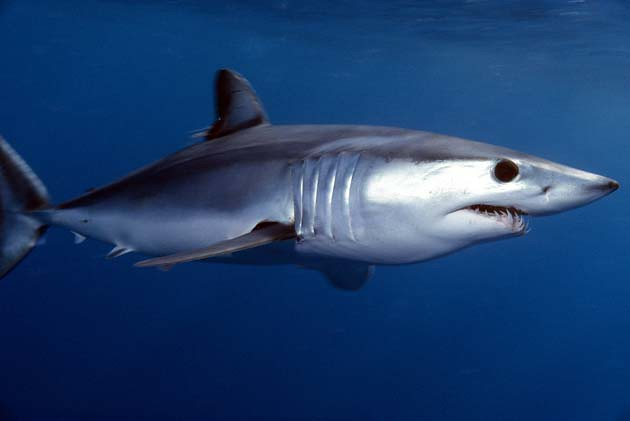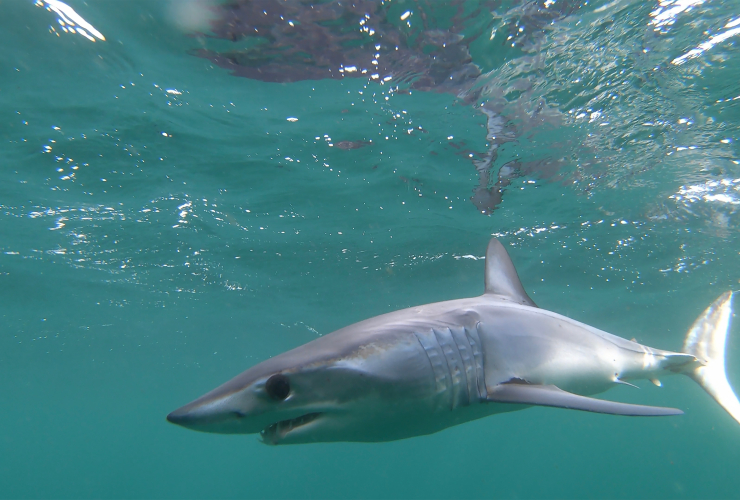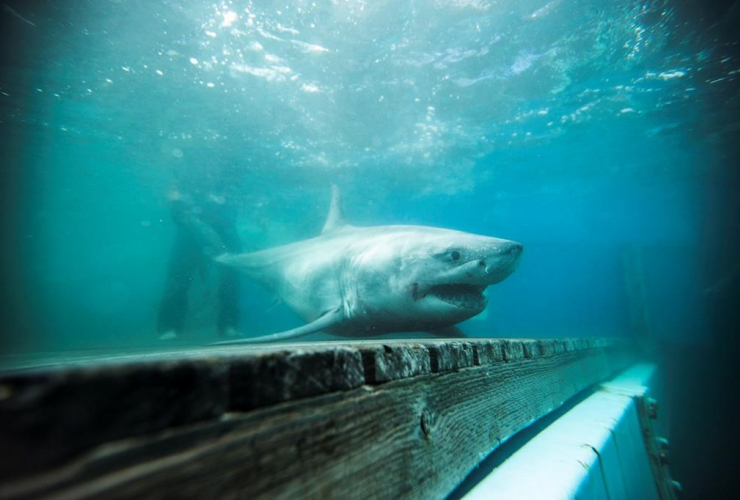Nova Scotia’s continental shelf is now a safer zone for North Atlantic shortfin mako sharks after long-awaited legislation was passed to protect them.
The endangered sharks are found everywhere from Canada’s Atlantic waters to the Caribbean Sea. Overfishing has caused the shark population to decline, and environmental groups have long pushed for a science-endorsed ban on retention (keeping the sharks when they’re caught, including accidentally).
Since last week, Canada has been at the International Commission for the Conservation of Atlantic Tunas (ICCAT) annual meeting, which draws countries from around the world to make decisions about migratory fish.
On Tuesday, after a virtual debate went hours over time, all parties agreed that until 2023, no retention of the shark will be allowed.
A longer ban would have been ideal, explained Shannon Arnold, marine program co-ordinator for Ecology Action Centre (EAC) in Nova Scotia, but the compromise seemed like a necessary move to get all nations on board.
Although Canada has had its own ban on retention of the shark in Atlantic fisheries since 2020, other parts of the world still actively fish it. In Spain, Portugal, and the U.S., mako sharks are fished for food, fins and sport. However, the European Union catches the lion's share of the species — 74 per cent of the reported catches of makos in 2020 came from the EU.
Since a unanimous consensus is needed to pass new rules through ICCAT, the group moved for the ban, but with a “complicated formula that may offer a way for some parties to resume [debating retention] after the reprieve,” explained the EAC.
However, Arnold hopes the ban will last longer because the 2017 ICCAT science assessment and advice to management found it would need to be in place for a number of years to allow the population to recover. For 15 years, the population will continue to decline even with a retention ban, and won’t fully recover for 50 years, said the report.
“There was a huge amount of pressure from the EU to have access [to makos],” said Arnold, who observed the meetings.
“... They've just been blocking it for years, so this is a major step. Because once you have that retention ban in place, it will be very, very difficult to lift it according to the data and the science that will come in.”
Across the pond, the U.K.-based group Shark Trust congratulated Canada, the U.K., Senegal, and Gabon for leading the fight for makos.
“At long last, we have the basis for a game-changing rebuilding plan, but it won’t be successful if we take our eyes off the EU and their egregious intent to resume fishing a decade before rebuilding is predicted to begin,” said Ali Hood, director of conservation for the Shark Trust.
“In this moment, however, we focus on the overwhelming chorus of concern that helped us reach this critical breakthrough. We’re deeply grateful for the ‘voices for makos’ — the continuous calls from conservationists, divers, scientists, aquarists, retailers, and elected representatives to protect this beleaguered shark.”
Another win at the meeting, said Arnold, concerned the bluefin tuna, the world’s largest tuna species where individual fish can grow to six feet long. Its numbers declined by 11 per cent between 2017 and 2020, but have started to increase. However, conservationists have cautioned that increasing fishing quotas too quickly will be harmful to the recovering population.
What was decided at the ICCAT meeting was a modest increase of around 40 tonnes for Canada, said Arnold, which includes stock that Canada trades with Mexico.
Updates and corrections
| Corrections policyThis article has been updated to include clarification on how long the mako population will continue to decline after a retention ban, as well as the process of the ICCAT annual meeting.






Comments